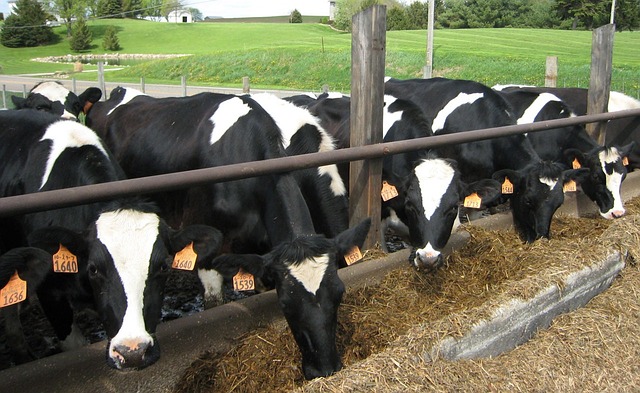The Los Angeles County Department of Public Health has confirmed a human case of H5 bird flu in an adult who was exposed to livestock infected with H5 Bird flu at a worksite.
This is the first human case of H5 bird flu detected in L.A. county. The person had mild symptoms, has been treated with antivirals, and is recovering at home. The overall risk of H5 bird flu to the public remains low.
There is currently no evidence of person to person spread of this virus. Close contacts of the infected person and other workers exposed at the worksite are being monitored for symptoms and have been offered personal protective equipment, testing and antiviral prophylaxis. No additional cases have been identified at this time. Public Health is working closely with the Centers for Disease Control and Prevention and the California Department of Public Health on the ongoing investigation.
“People rarely get bird flu, but those who interact with infected livestock or wildlife have a greater risk of infection. This case reminds us to take basic precautions to prevent being exposed,” said Muntu Davis, Los Angeles County Health Officer. “People should avoid unprotected contact with sick or dead animals including cows, poultry and wild birds; avoid consuming raw or undercooked animal products, such as raw milk and protect pets and backyard poultry from exposure to wild animals. It is also important for everyone to get the seasonal flu vaccine, which can help prevent severe seasonal flu illness and lower the risk of getting both seasonal and bird flu infections at the same time if exposed.”
Symptoms of H5 bird flu in humans include eye redness or discharge, fever, cough or difficulty breathing, sore throat, muscle or body aches, diarrhea and vomiting.
People working with infected animals, including cows, poultry or wildlife, continue to be at higher risk of exposure to H5 bird flu. Public Health has been working with the California Department of Food and Agriculture and the local L.A. County agricultural community to ensure key risk groups, including farm workers, workers at dairy, egg and meat processing facilities and backyard flock owners receive information and resources to help identify and protect against this infection, this includes access to gloves, face masks and eye protection along with access to testing and flu vaccines. Anyone who was exposed to sick animals and is experiencing symptoms of H5 bird flu should immediately contact their health care provider and local health department.
How People Who Work with Animals Can Protect Themselves
While working with animals, their feces, water sources like drinking water or buckets, or raw milk:
Wear Personal Protective Equipment, including:
Disposable gloves
N-95 mask
Goggles
Coveralls that keep you dry
Head or hair cover
Boot covers or boots
Wash hands with soap and water throughout the day and before touching your face.
Do not drink raw milk nor feed it to pets. You and your pets could get sick from drinking raw milk from sick cows.
Do not touch your face. Do not eat, drink or put anything near your mouth.
Only touch personal belongings or use the bathroom after washing your hands with soap and water.
Shower and change out of work clothing and shoes before going home if possible or shower and change as soon as you get home.
Public Health encourages residents to follow these best practices:
Avoid Raw Dairy and Undercooked Meat Products: Do not drink raw milk or eat raw cheeses and undercooked meat products. Do not feed these to your pets.
Limit Contact with Animals: Avoid unprotected contact with sick or dead animals or birds or any materials contaminated with bird feces. Avoid handling wild birds and observe them only from a distance. If you have to handle wild birds, even if they appear healthy, wear a well-fitting mask and gloves and practice good hand hygiene, as some birds may carry the virus without showing symptoms.
Report sick or dead birds: Contact your local animal control agency if you see sick or dead birds. Symptoms can vary; infected birds or animals may be unable to fly, have seizures, have difficulty walking or be found dead.
Protect pets or poultry: Keep pets or poultry away from wild animals and birds. Ensure that wild birds cannot defecate into areas holding or housing pet birds or poultry.
Remove Bird Feeders and Baths: Take down bird feeders and communal bird baths to reduce the risk of the virus spreading from bird-to-bird.
Get a Seasonal Flu Vaccine: Everyone should receive a seasonal flu vaccine. While this vaccine does not prevent avian influenza infection, it can reduce the risk of getting sick with human and bird flu viruses at the same time.
For questions or to find a nearby clinic or doctor, residents can call the Public Health InfoLine at (833)540-0473. Open every day from 8 a.m. to 8 p.m.
For more information, visit our websites:
Avian flu in animals: publichealth.lacounty.gov/vet/HPAI.htm
Avian flu in humans: ph.lacounty.gov/acd/diseases/h5n1.htm
Like this:
Like Loading...
Related





 Tweet This
Tweet This Facebook
Facebook Digg This
Digg This Bookmark
Bookmark Stumble
Stumble RSS
RSS



























REAL NAMES ONLY: All posters must use their real individual or business name. This applies equally to Twitter account holders who use a nickname.
0 Comments
You can be the first one to leave a comment.